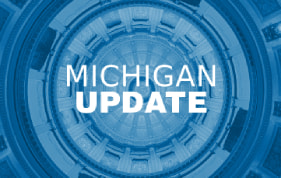This week, our In Focus section reviews publicly available data on enrollment in capitated financial and administrative alignment demonstrations (“Duals Demonstrations”) for individuals dually eligible for Medicare and Medicaid (dual eligibles) in nine states: California, Illinois, Massachusetts, Michigan, New York, Ohio, Rhode Island, South Carolina, and Texas. Each of these states has begun either voluntary or passive enrollment of dual eligibles into fully integrated plans providing both Medicaid and Medicare benefits (“Medicare-Medicaid Plans,” or “MMPs”) under three-way contracts between the state, the Centers for Medicare & Medicaid Services (CMS), and the MMP. As of February 2021, approximately 392,000 dual eligibles were enrolled in an MMP. Enrollment rose 5.7 percent from February of the previous year.
1814 Results found.

Modest Skilled Nursing Facility Payment Update and Policy Updates in 2022 Proposed Rule
This week, our In Focus reviews the fiscal year (FY) 2022 skilled nursing facility (SNF) proposed payment rule, released by the Centers for Medicare & Medicaid Services (CMS) on April 8, 2021. If the proposals contained in the rule are foreshadowing, SNFs will continue to face financial pressures coming out of the public health emergency. This payment update, combined with other policy proposals, is likely to lead to the smallest payment update since the Medicare Access and CHIP Reauthorization Act of 2015 set a 1 percent increase in FY 2018. The rule proposes a net payment update of 1.3 percent after accounting for forecast error and the multifactor productivity adjustment. In addition to the payment update, CMS proposes changes to the SNF Quality Reporting Program (QRP), and the SNF Value-Based Program (VBP) for FY 2022. Notably, CMS proposes an eventual payment correction to achieve a budget neutral implementation of the Patient-Driven Payment Model (PDPM) that could result in a 5 percent rate reduction.

Federal Funding for Home and Community-based Services (HCBS): Enacted and Proposed Investments
This week, our In Focus reviews federal enacted and proposed investments in home and community-based services (HCBS). HCBS are critically important for millions of Americans with disabilities and older adults, assisting them to remain in their homes and participate in their communities. People with disabilities and older adults have also been disproportionately affected by COVID-19, yet little federal funding has been directed to HCBS during the public health emergency. This changed on March 11, 2021, when the American Rescue Plan Act (ARPA) was signed into law, with both Medicaid and non-Medicaid HCBS funding included. Additionally, the Administration has recently proposed further HCBS investments in both The American Jobs Plan and the President’s 2022 Discretionary Request.

HMA contributes to NAM perspectives discussion paper ‘Guide for Future Directions for Addiction and OUD Treatment Ecosystem’
HMA Managing Directors R. Corey Waller, MD, MS, and Jean Glossa, MD, MBA, along with members of the Prevention, Treatment, and Recovery Working Group of the Action Collaborative on Countering the U.S. Opioid Epidemic, recently authored a new National Academy of Medicine Perspectives discussion paper calling for a long-term sustainable approach to preventing and managing addiction as a chronic disease.
To adequately respond to America’s drug overdose and death epidemic, the paper states the ecosystem in which people with addiction receive treatment must be reimagined and made more robust. The National Academy’s framework best describes the needs of and solutions for the addiction treatment ecosystem using the guidance of ‘the 4 Cs”: capacity, competency, consistency, and compensation.
Authors
R. Corey Waller, MD, MS, Managing Director, HMA Institute on Addiction
Kelly J. Clark, MD, MBA, DFAPA, DFASAM, President, Addiction Crisis Solutions and Immediate Past President, American Society of Addiction Medicine.
Alex Woodruff, MPH, policy analyst, Partnered Evidence-based Policy Resource Center, VA Boston Healthcare System.
Jean Glossa, MD, MBA, Managing Director, Delivery System, HMA
Andrey Ostrovsky, MD, Managing Partner, Social Innovation Ventures

Leavitt Partners to Become Part of Health Management Associates

HMA Analysis of Medicare Advantage Star Rating Challenges
This week, our In Focus section highlights changes that may affect the Centers for Medicare & Medicaid Services (CMS) Medicare Advantage Star Rating program and how these changes impact future summary Part C & D Star Rating scores. As the CMS Medicare Advantage Star Rating program continues evolving from year to year, many plans have yet to achieve at least four star status, and therefore are missing out on additional Medicare revenues. The Star Rating landscape is expected to change drastically over the next two years for plans due to CMS’ continued focus on phasing-in greater reliance on outcomes measures and measures of care experience, rather than process measures. As a result, many plans are at risk of losing their four star overall rating and underperforming plans could be at risk of receiving a low performance indicator.

